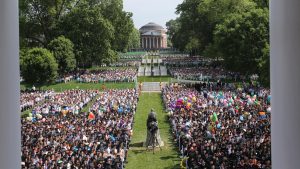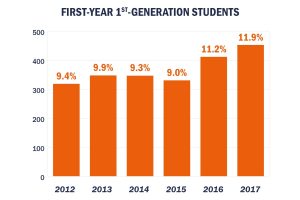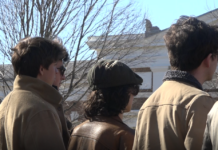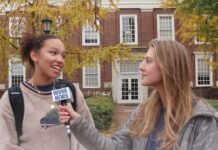
First-generation college students (FGCS) face an array of unique challenges upon enrollment that extend years past graduation. The formative years of a university career are already daunting, and each year, a new group of FGCS will be unfairly asked to handle more responsibility with less preparation. Fortunately, the financial, emotional, psychological burden that these students must shoulder is lessened by the many resources available at the University or Virginia.
Perspectives about work, family, religion and community are passed down through the family tree. This creates a pre-established mindset of a family members’ role in the home and in the community. When a family member disrupts this inherited system by choosing to attend college, he or she may experience a shift in identity, leading to a sense of loss and perhaps even guilt. This feeling can be compounded by familial pressures to conform; some family members may even see college as a retrograde shift in their familial legacy. Being so young and so unprepared for this new mental strain, many first-generation students may come to develop a split identity—one for home and one for college. However, the rapid pace by which a university career propels their lives, handicapped by the gravity of their previous life, causes many FGCS to feel like they do not belong in either place.
 A 2010 study by the U.S. Department of Education reported that nationally, of the current population enrolled in higher education, over 50% are first-generation students. And about half of all of those students in the States identify with a low-income household. These students are also more likely to be a member of a racial or ethnic minority group, and are thus more likely to experience discrimination based on these traits. In the most recently accepted class of students at UVa, only around 450 of the 3,781 offers given were to incoming FGCS (11.9%). This means that our FGCS in particular may feel that much more isolated than most, and should receive as much care and confidence as the Community of Trust can give. This also means though, that these students may be more determined, more steadfast in the pursuit of their education than most.
A 2010 study by the U.S. Department of Education reported that nationally, of the current population enrolled in higher education, over 50% are first-generation students. And about half of all of those students in the States identify with a low-income household. These students are also more likely to be a member of a racial or ethnic minority group, and are thus more likely to experience discrimination based on these traits. In the most recently accepted class of students at UVa, only around 450 of the 3,781 offers given were to incoming FGCS (11.9%). This means that our FGCS in particular may feel that much more isolated than most, and should receive as much care and confidence as the Community of Trust can give. This also means though, that these students may be more determined, more steadfast in the pursuit of their education than most.
In a 2012 study conducted by the CollegeBoard and U.S. Department of Education, it was reported that 2 out of every 3 first-generation college students go to college in order to support their families. 69% of FGCS say they want to help their families, compared to 39% of students whose parents have earned a degree. In the same study, 61% of first-generation students defined the motive for their education as wanting to give back to their communities compared to 43% of their non-first-generation peers.
 The UVa Career Center is an invaluable resource for all students, especially first-generation college students who might not know the first place to turn to for help. The counsellors and administration offer consultation for career guidance, job search and networking tools, as well as creative financing advice for paying off students loans upon graduation. For example, the Office of the Dean of Students (ODOS) provides students receiving university financial aid support in the form of “one-on-one meetings; programs related to financial literacy, housing, study abroad, etc.; and outreach dedicated to promoting the academic and emotional wellbeing of students.”
The UVa Career Center is an invaluable resource for all students, especially first-generation college students who might not know the first place to turn to for help. The counsellors and administration offer consultation for career guidance, job search and networking tools, as well as creative financing advice for paying off students loans upon graduation. For example, the Office of the Dean of Students (ODOS) provides students receiving university financial aid support in the form of “one-on-one meetings; programs related to financial literacy, housing, study abroad, etc.; and outreach dedicated to promoting the academic and emotional wellbeing of students.”
In the case that FGCS would like community rather than consultation, there are many on-grounds student group here to offer just that. The United for Undergraduate Socioeconomic Diversity (UFUSED) chapter at UVa “aims to foster an inclusive university environment, regardless of socioeconomic status, by advocating for the success of lower income and First Generation students.”
















